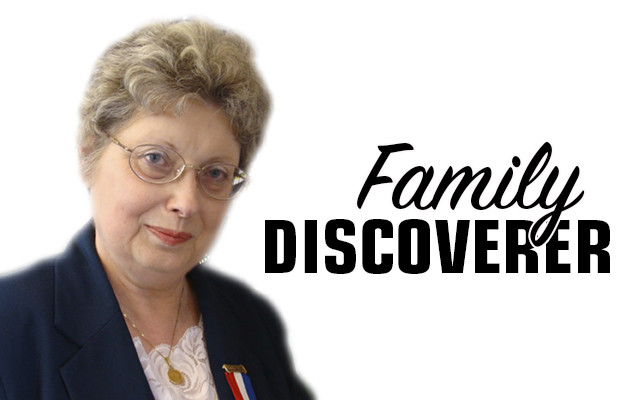
Border crossings
By Nancy Battick
When someone legally crossed a national border, it left records. Such records can provide valuable information about our ancestors and relatives. Genealogists know about passport applications, but not all have used border crossing records. Let’s take a look at how they might help you.
For this column I’ll concentrate on the U.S.-Canada border crossings through Maine. Records exist for other states and for the U.S.-Mexican border as well. But since Maine shares a border with two Canadian provinces, let’s focus on that. I’ll give you a random example of what you might find in these records.
When George Edmund St. Thomas crossed into Houlton, Maine, from Grand Falls, New Brunswick, on Oct. 7, 1925, he stated he was 43 years old, born in Grand Falls, and indicated he was of French descent. He stated he had a wife, Agnes, and a brother, Frank, both residing in Grand Falls, and gave their addresses. He said he was on his way to Rhode Island to work and had $200 in cash with him. If George was a relative, you can see the value of this record.
Sometimes records hold surprises. I knew a second cousin had married and divorced, but I hadn’t known there was a second marriage. This was revealed in a Jackman, Maine, border crossing record. In 1946, wife No. 2 arrived on her way to Dover-Foxcroft to live with her husband. Her record gave her birth name and place. The marriage didn’t last long as the 1950 U.S. census revealed the second cousin was divorced. But I’d never heard of the second wife and the only record appears to be this border crossing.
These cards can really help when searching for ancestors. The original cards are held at the National Archives in Washington, D.C. Digital copies exist along with a basic transcription for some of these records. You can find many on familysearch.org, though the Maine border crossings aren’t available yet on that site. Ancestry.com has records from 1895-1960, and for Maine these include ports of entry in Bangor, Calais, Eastport, Fort Fairfield, Jackman, Van Buren and Vanceboro. Most are in English, but some are in French.
If you had an ancestor or relative who came to Maine to work or who had family in Quebec or New Brunswick and was likely to have visited them, a record should exist. The border crossing will give full name, birth information, where they lived, when they arrived, if they were coming into the country for the first time, where they came from, where they were going, the name of at least one family member, spouse if married, child, and the name of any relative or friend in the U.S. Some include physical descriptions.
Many of these records area indexed, making your search easier, but if you can’t find a person, try variations of the surname. The digital copies of the original cards are often difficult to decipher, and often information was squeezed between lines. Still, what they can reveal is well worth the search.
Columnist Nancy Battick of Dover-Foxcroft has researched genealogy for over 30 years. She is past president of the Maine Genealogical Society, author of several genealogical articles and co-transcribed the Vital Records of Dover-Foxcroft. Nancy holds an MA in History from UM and lives in DF with her husband, Jack, another avid genealogist. Reader emails are welcome at nbattick@roadrunner.com.